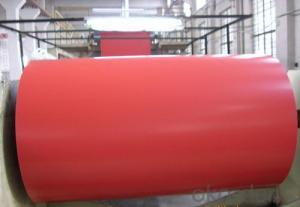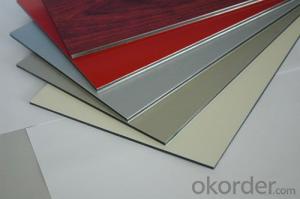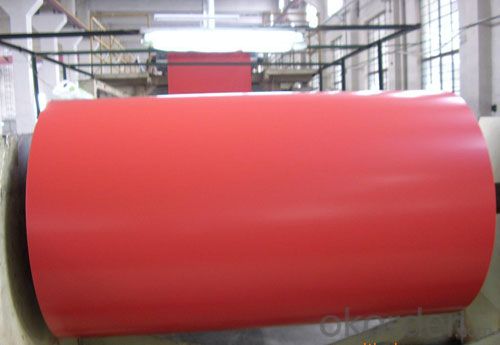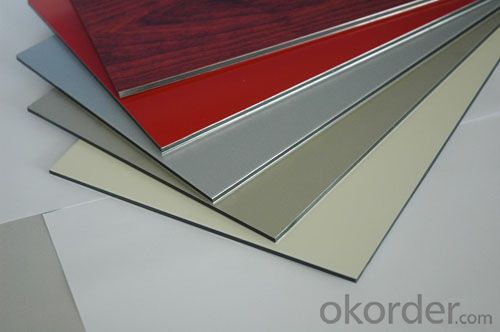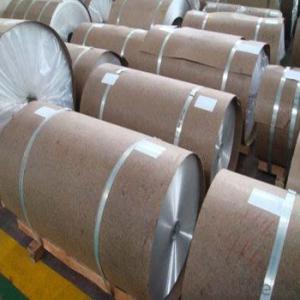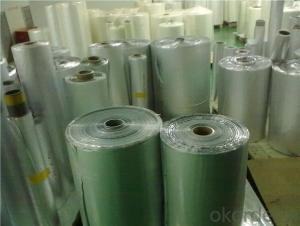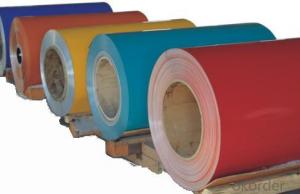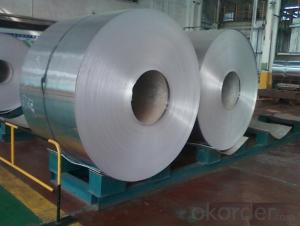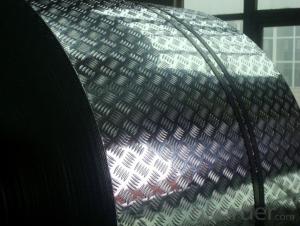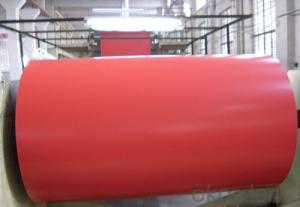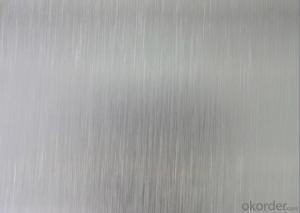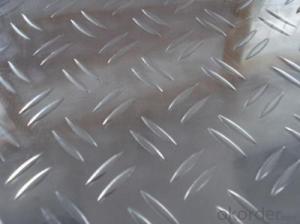Aluminum Coil Minnesota Painted Aluminium Sheets Plates for Wall Decorations
- Loading Port:
- China main port
- Payment Terms:
- TT OR LC
- Min Order Qty:
- 3 m.t.
- Supply Capability:
- 5000 m.t./month
OKorder Service Pledge
OKorder Financial Service
You Might Also Like
Specification
1.Description of Painted Aluminium Sheets Plates for Wall Decorations
Alloy: 1050, 1100, 3003, 3005, 3105, etc
Thickness: 0.15mm~1mm
Painting Thickness: 5-10mic for back coating, 15-40mic for top coating
Paint Types: PVDF, PE, HDPE, LDPE, etc
Width: 900mm- 1950mm
Color: According to RAL colors or customer's samples
2. Application of Painted Aluminium Sheets Plates for Wall Decorations
(1).Interior: wall cladding, ceilings, bathrooms, kitchens and balconies, shutters, doors...
(2).Exterior: wall cladding, facades, roofing, canopies, tunnels,column covers , renovations...
(3).Advertisement: display platforms, signboards, fascia, shop fronts...
3. Feature of Painted Aluminium Sheets Plates for Wall Decorations
*Such coil is specially designed to replace aluminum ingot, due to the high export tax of aluminum ingot, the coil has better price than ingot.
*This type of coil can fit customer's remelting furnace just like ingot, no need to make any change to the production line that was previously used for ingot. The standard coil size and weight is very suitable for the feed gate of furnace.
*This type of coil causes less material wastage than ingot when remelted.
*Our coil is made directly from ore, no need to go though the ingot making process, quality is much better than other suppliers who use ingot scrap to make coil.
Be free from Oil Stain, Dent, Inclusion, Scratches, Stain, Oxide Dicoloration, Breaks, Corrosion, Roll Marks, Dirt Streaks and other defect which will interfere with use
4. Certificate:
SGS and ROHS(if client request, paid by client), MTC(plant provided), Certificate of Origin(FORM A, FORM E, CO), Bureau Veritas and SGS (if client request, paid by client), CIQS certificate
5. Image of Painted Aluminium Sheets Plates for Wall Decorations
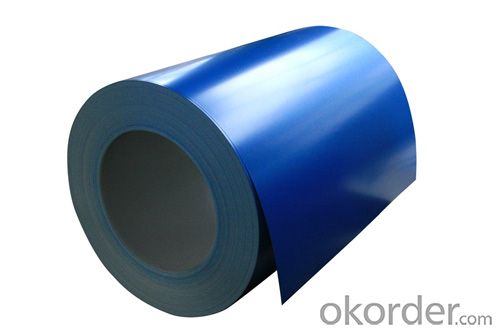
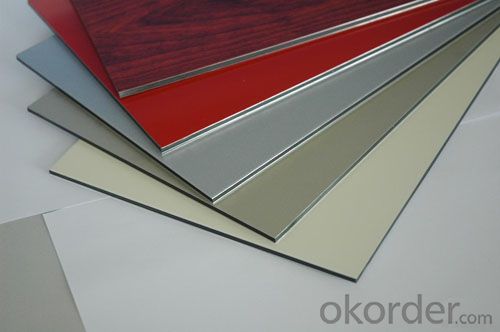
6. FAQ
1) What is your delivery time?
Our regular production time is over 30 days, It depends on the order quantity also.
2) What is your payment term?
We accept T/T, LC at sight, Usance LC 30, 60, 90, 120, 180 DAYS.
3) What is your price structure?
Our foil price is based on Shanghai Metal Price(SMM), not LME, but we could offer LME+ Conversion for your reference.
4) What is your Delivery term?
We do FOB, CFR, CIF, we don't do DDP.
5) Could you offer sample?
We could offer sample as your requirement. A4 Size sample is free for you, for bigger roll sample, it depends on the coil weight.
- Q: What is the formula to calculate the wall thickness of aluminum coil?
- Aluminum coil thickness*aluminum coil width*aluminum coil curl*aluminum density (the density of aluminum alloy: 2.73, the density of pure aluminum: 2.71)
- Q: What is the role of aluminum coils in the construction of power plants?
- Aluminum coils play a crucial role in the construction of power plants, especially in the cooling systems. The main purpose of these coils is to facilitate heat transfer and maintain efficient cooling within the power plant. Power plants generate a significant amount of heat during the process of converting fuel or other energy sources into electricity. To prevent overheating and ensure optimal performance, cooling systems are installed to dissipate this excess heat. Aluminum coils are a key component of these cooling systems. The aluminum coils are typically used in the construction of air-cooled condensers and evaporators, which are integral parts of the cooling systems. These coils allow for the transfer of heat from the plant's equipment to the surrounding air. They are designed to efficiently transfer and dissipate heat by utilizing the high thermal conductivity of aluminum. The use of aluminum coils offers several advantages in power plant construction. Firstly, aluminum is a lightweight material, making it easier to handle and install in large-scale power plants. This helps reduce construction time and costs. Additionally, aluminum is highly resistant to corrosion, ensuring the longevity and durability of the coils even in harsh operating conditions. Furthermore, aluminum coils provide excellent heat transfer capabilities. They have a high thermal conductivity, meaning they can efficiently transfer heat from the power plant equipment to the cooling medium, typically air. This allows the power plant to maintain stable operating temperatures and prevent any equipment failures or performance issues caused by excessive heat buildup. Overall, aluminum coils are essential components in power plant construction, primarily in the cooling systems. They enable efficient heat transfer, promote optimal cooling, and contribute to the overall performance and reliability of the power plant.
- Q: How do aluminum coils contribute to the sound insulation of buildings?
- Aluminum coils contribute to the sound insulation of buildings by acting as a barrier or shield against sound transmission. The coils are often used in the construction of windows, doors, and other building components to dampen or block noise from entering or exiting a space. Their properties, such as their density and ability to reflect or absorb sound waves, help reduce the level of noise that can pass through the building envelope, resulting in improved sound insulation.
- Q: Is it possible to create a mobile phone stand or holder using aluminum coils?
- <p>Yes, you can use aluminum coils to make a mobile phone stand or holder. Aluminum is lightweight, durable, and easy to shape, making it a suitable material for such DIY projects. You can bend the aluminum coil into the desired shape to support your phone, either horizontally or vertically. Ensure the coil's diameter is appropriate to hold your phone securely without causing any damage. Remember to smooth any rough edges to prevent scratches on your phone.</p>
- Q: Can aluminum coils be used in building facades?
- Yes, aluminum coils can be used in building facades. Aluminum is a popular material choice for building facades due to its numerous benefits. It is lightweight, durable, and corrosion-resistant, making it suitable for exterior applications. Aluminum coils can be formed into various shapes and sizes, allowing for creative and versatile design possibilities. Additionally, aluminum is available in a wide range of finishes, including anodized, painted, and coated, providing further customization options for building facades. Moreover, aluminum is a sustainable material as it is 100% recyclable, making it an environmentally friendly choice for construction projects. Overall, aluminum coils are a viable option for building facades, providing both aesthetic appeal and functional performance.
- Q: Are aluminum coils suitable for food processing and packaging?
- Yes, aluminum coils are suitable for food processing and packaging. Aluminum is a safe and hygienic material that is resistant to corrosion, odors, and moisture. It is commonly used for packaging food products due to its ability to maintain the freshness and quality of the food, preventing contamination and providing a longer shelf life. Additionally, aluminum coils are lightweight, flexible, and can be easily formed into various shapes and sizes, making them ideal for food packaging applications.
- Q: Are aluminum coils resistant to moisture?
- Yes, aluminum coils are highly resistant to moisture. Aluminum has a natural oxide layer that forms on its surface, which acts as a protective barrier against moisture and prevents corrosion. This makes aluminum coils an excellent choice for applications where exposure to moisture is a concern, such as in HVAC systems or outdoor equipment.
- Q: i have recently received a task to research the recycling processes of aluminum ..... the task also asks to STATE ALL RELEVANT MATHEMATICAL OR/AND CHEMICAL EQUATIONS ...when i researched the task i found how aluminum is recycled, but i couldnt find the relevant equations ...can you please help meall answers are really appreciated
- Aluminium recycling is the process by which scrap aluminium can be reused in products after its initial production. The process involves simply re-melting the metal, which is far less expensive and energy intensive than creating new aluminium through the electrolysis of aluminium oxide (Al2O3), which must first be mined from bauxite ore and then refined using the Bayer process.
- Q: Are aluminum coils suitable for electrical grounding applications?
- Yes, aluminum coils are suitable for electrical grounding applications. Aluminum is a highly conductive material, with approximately 61% of the conductivity of copper. It is commonly used in electrical applications where conductivity and corrosion resistance are important factors. Aluminum coils provide a cost-effective alternative to copper coils for grounding purposes. Additionally, aluminum coils are lightweight and easy to work with, making them a popular choice for electrical grounding applications. However, it is important to ensure proper installation and maintenance to prevent any potential issues like galvanic corrosion when connecting aluminum to other metals.
- Q: What are the potential fire hazards associated with aluminum coils?
- The potential fire hazards associated with aluminum coils include overheating, electrical failures, and the risk of flammable materials coming into contact with the coils.
Send your message to us
Aluminum Coil Minnesota Painted Aluminium Sheets Plates for Wall Decorations
- Loading Port:
- China main port
- Payment Terms:
- TT OR LC
- Min Order Qty:
- 3 m.t.
- Supply Capability:
- 5000 m.t./month
OKorder Service Pledge
OKorder Financial Service
Similar products
Hot products
Hot Searches
Related keywords
